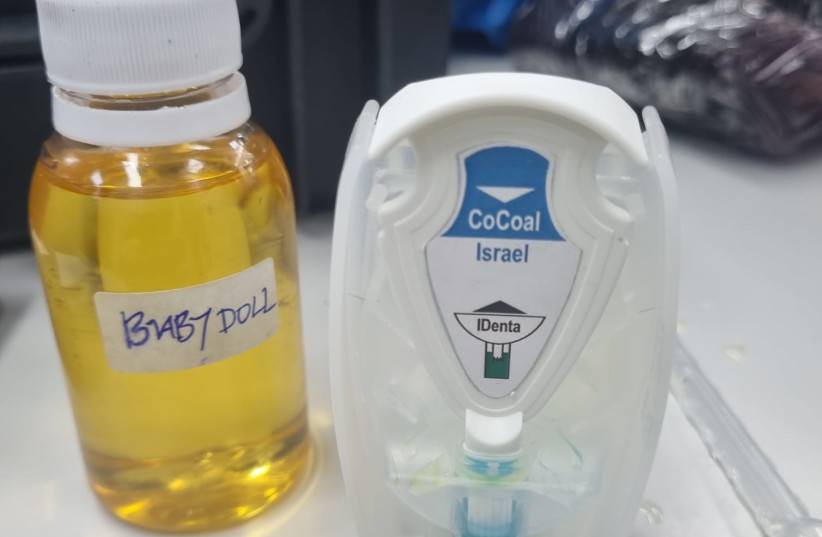An attempt to smuggle liquid cocaine disguised as perfume kits was halted on Sunday by Israel Police and Tax Authority inspectors from the Jordan River Customs House and Jordan River Border Crossing.
Three UN employees serving on the Syrian border were apprehended by the Northern District Police's Yagal Unit on suspicion of involvement in the smuggling operation.
The UN employees arrived at the border crossing between Jordan and Israel during the day. Routine checks by the Tax Authority and Airport Authority personnel at the border crossing raised suspicions regarding the perfume kits brought by the passengers, which included bottles containing liquid.
The kits were subjected to thorough examination, including the use of a sniffer dog. The investigation revealed reasonable suspicion that the substance was liquid cocaine, leading the UN employees to be taken into custody for further questioning by the Northern District Police.
Previous smuggling attempts
This episode is the latest in a series of drug smuggling attempts that have been effectively curtailed by Israeli authorities. Two weeks prior, an IDF soldier intercepted a group of smugglers at the Israeli-Egyptian border, leading to the confiscation of drugs with a street value of approximately NIS 5 million (approximately $1,390,000 USD) and the arrest of two suspects.

Throughout the year 2023, the IDF has thwarted 30 such smuggling attempts, preventing drugs valued at approximately half a billion shekels from reaching the Israeli market.
These incidents, while disturbing, reflect the effectiveness of anti-smuggling measures put into place by the Israeli authorities.
The profitability of drug smuggling
In a more extensive context, drug smuggling is a significant problem for Israel. Israeli smugglers, according to the IDF, can make a profit of $50,000-$70,000 from a single smuggling attempt that requires an up-front cost of $150,000. This lucrative criminal enterprise is not only restricted to the Israeli side; those on the Egyptian side of the border can profit $25,000-$35,000 from an attempt with an initial cost of $50,000.
In a report published by the European Union in 2014, it was indicated that a substantial portion of drugs smuggled into Israel are intended for domestic use. The report stated that "Israel is not a major narcotics producing or trafficking country, but has a significant domestic market for illegal drugs, facing an increasing demand for cocaine, hashish and marijuana, as well as heroin, LSD, and ecstasy."
Israel Police has been proactively tackling the issue, most recently by disbanding a South America-based cocaine smuggling ring operating in central Israel. Several suspects from Tira, a city in central Israel, were arrested following an international investigation conducted by the Central Unit of the police's Central District. The cocaine, worth tens of millions of shekels, was smuggled into Israel in 140 liters of bottles and hidden in the Triangle, an area of northern Israel.
These varied incidents underline the multifaceted and international nature of drug trafficking, with smuggling attempts regularly thwarted at airports, border crossings, and within Israel itself.
